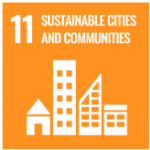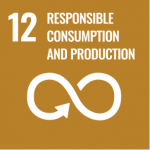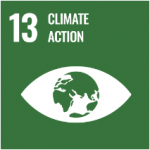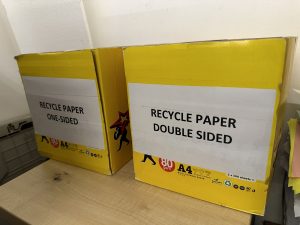
Environmental, social, and governance (ESG) criteria are a set of standards for a company’s operations that will make sure that the company operations went well. The current highlight of any ESG programme in an organisation includes sustainability issues, risks and opportunities.
Every staff needs to develop the confidence to argue the business case for sustainability informed by a comprehensive understanding of the impact of current global economic, social, and environmental pressures. Reading about what is happening in and outside the country is important to provide ourselves with a sense of awareness of ESG.
As an institute of higher learning, we need to identify what are the important ESG (Environment, Social, Governance) focus areas. Again, reading and discussions on this matter is important to create value at the individual and organisational levels. Corporate ESG is also about learning how to set up the governance structure, performance tracking and stakeholder communications all of which are beneficial to any organisation. Once we have understood the meaning of corporate ESG, each of us need to understand the skills and knowledge needed to design, innovation and leadership competencies within your work group.
As an institute of higher learning, we need to identify what are the important ESG (Environment, Social, Governance) focus areas. Again, reading and discussions on this matter is important to create value at the individual and organisational levels.
Corporate ESG is also about learning how to set up the governance structure, performance tracking and stakeholder communications all of which are beneficial to any organisation.
Once we have understood the meaning of corporate ESG, each of us need to understand the skills and knowledge needed to design, innovation and leadership competencies within your work group.
CAMPUS SUSTAINABILITY
ENERGY SAVING
Key initiatives
LIGHTING
We use all LED lighting on campus, which uses less energy to perform the same function. Light-emitting diodes (LED) require 75% less energy than traditional incandescent lightbulbs. The light output is the same, but the energy input is less. Due to unique features in design, we take advantage of natural daylight by turning off when adequate human detection is available. The campus honeycomb design provides more natural light in the whole building and closeness to nature. In addition, it can save about 20% in terms of electricity usage.
AIR-CONDITIONING
A modern air conditioning system is used to improve energy conversation on campus. Infrared sensors detect the average temperature in the classrooms, and therefore the temperature in all rooms is controlled strictly. Regulations in setting the room thermostat at around 25 Celsius are applied. Moreover, air conditioning is turned off when not in use. Although the campus has no air conditioning in public areas, it still maintains a comfortable temperature. The building structure in the campus design work as natural air conditioning, providing fresh air for the whole building’s corridors, staircases and public spaces.
Relevant UN Sustainable Development Goals


Gallery


WATER CONSERVATION PROGRAM
Key initiatives
We have taken action to improve the effectiveness of water use through various activities and initiatives. Water-saving also keeps the local environment healthy.
An automatic push up tap with a 5 seconds limit is installed to control the flow of water to the user. When releasing the tap, the water flow will stop after a delay of between 1 and 5 seconds. Smart taps help us save a lot of water and sewage fees.
Our pipeline system is checked periodically to identify water leaks. Leakage reduction is one of top our priorities to protect water supply sources and ensure there is enough water to meet future demand.
Relevant UN Sustainable Development Goals


RECYCLING PROGRAM
Key initiatives
Vision College understands the need to balance the requirements of maintaining and developing facilities to support teaching, research and public services while managing the natural environment that is an integral part of the Campus and the surrounding region. With the 3R practise of reducing, reusing, and recycling, Vision College is also taking an important step to reduce carbon footprint in their daily lives. Vision College management ensures all the staff are managed in an environmentally responsible manner. recycled and recyclable. For example, avoid printing files that can be sent by email and reuse double-sided paper.
SORTING AND COLLECTING WASTE
Various trash bins have been installed inside the campus with specific instructions to make sorting waste easier and more convenient. The University recycles a wide array of materials, including paper, metal, wood, food, bottles and cans, yard waste, construction debris, electronic equipment.
Relevant UN Sustainable Development Goals



Gallery


TRANSPORTATION
Key initiatives
Car-sharing initiatives benefit both the environment and traffic congestion, which is an urgent priority in densely populated cities like Klang Valley.Vision College is urging their employees to use carpooling services for their daily commute. Bus stops are within walking distance of College and main areas where students congregate.
Designated parking facilities are available for cars, motorbikes and bicycles
Relevant UN Sustainable Development Goals

